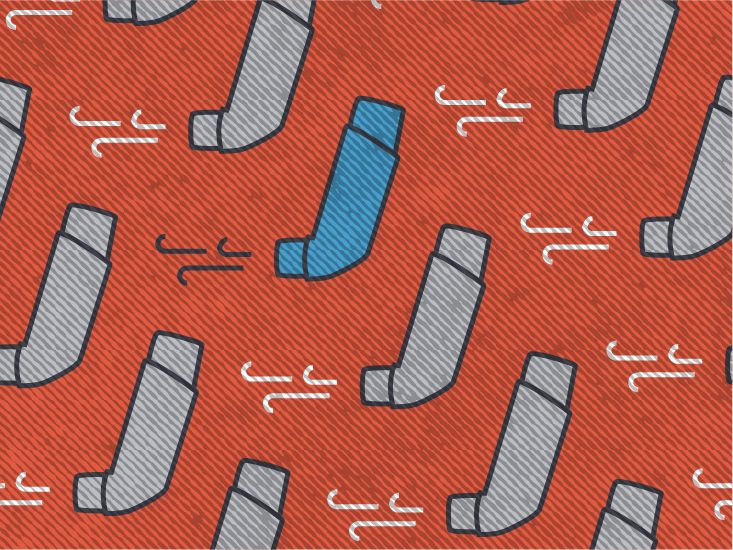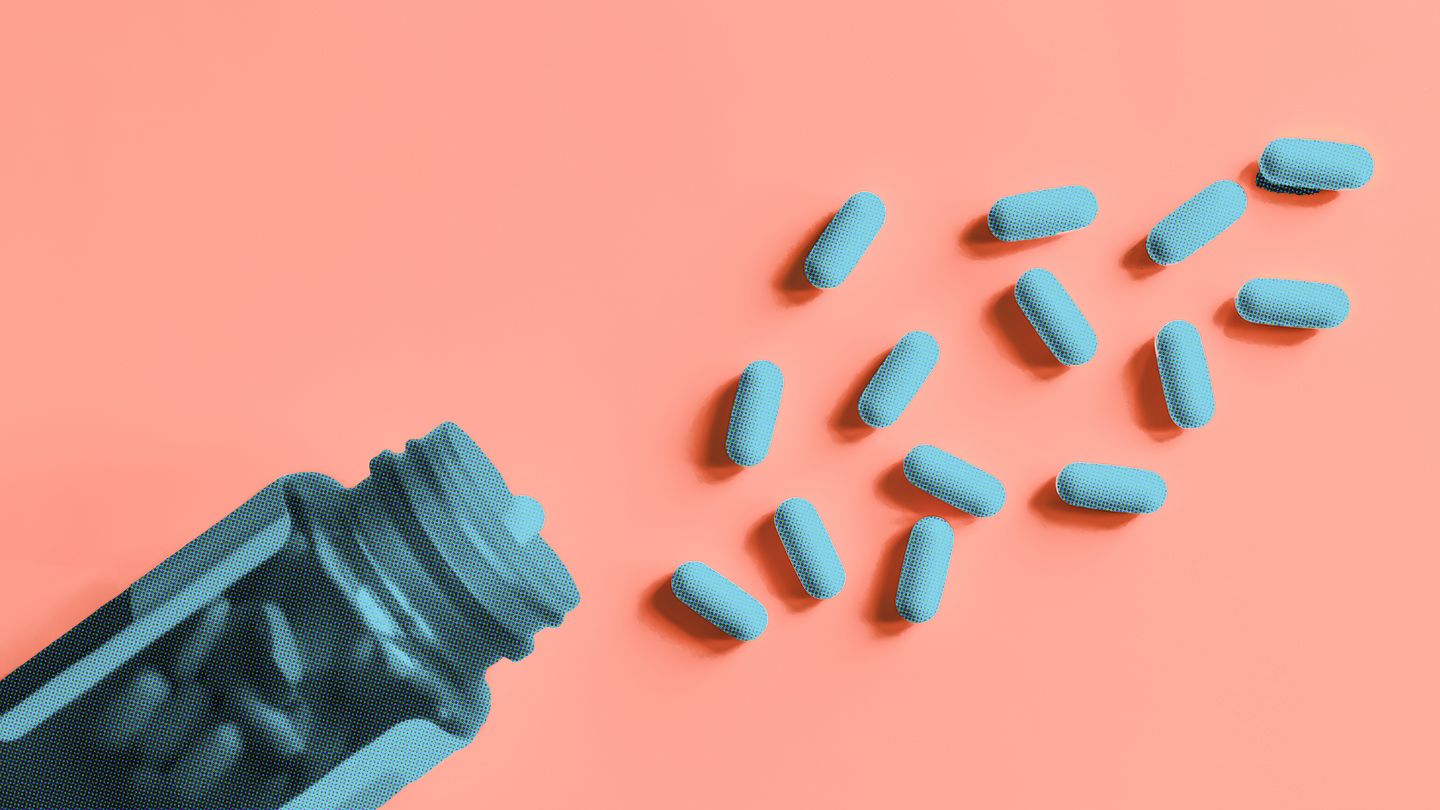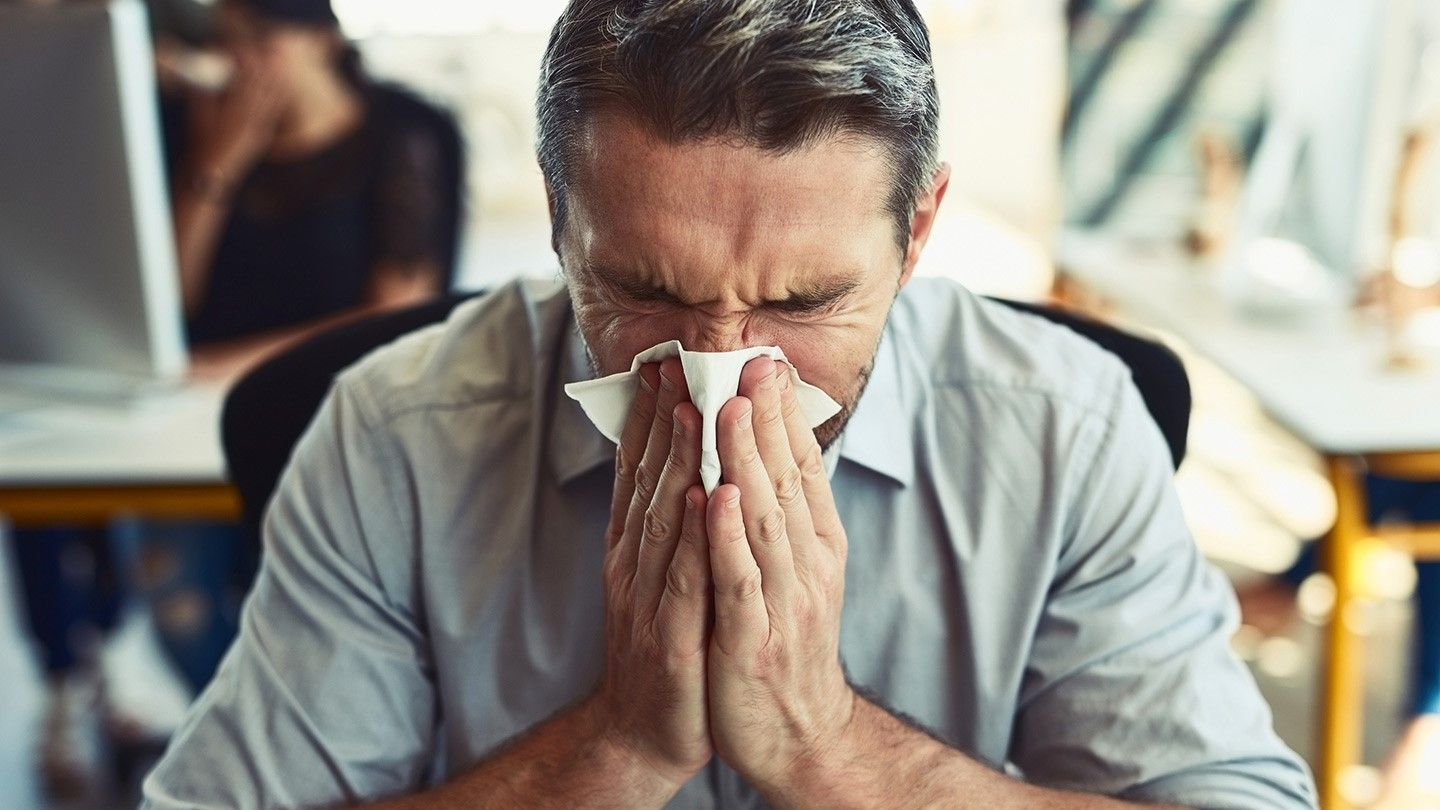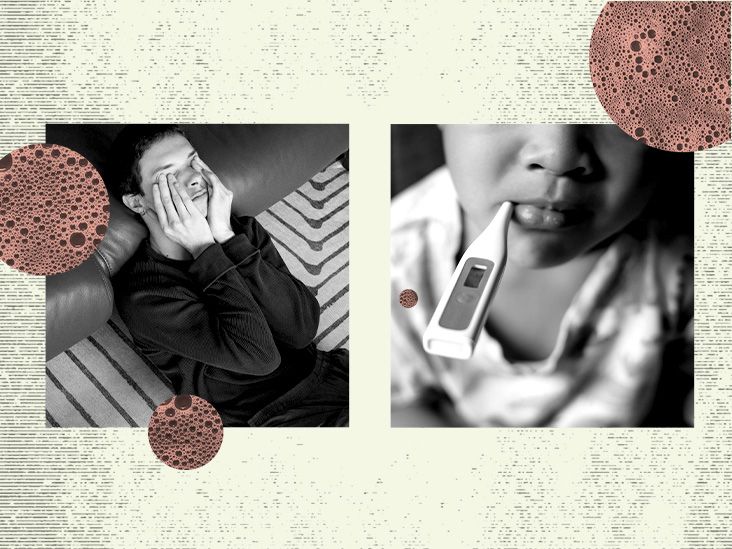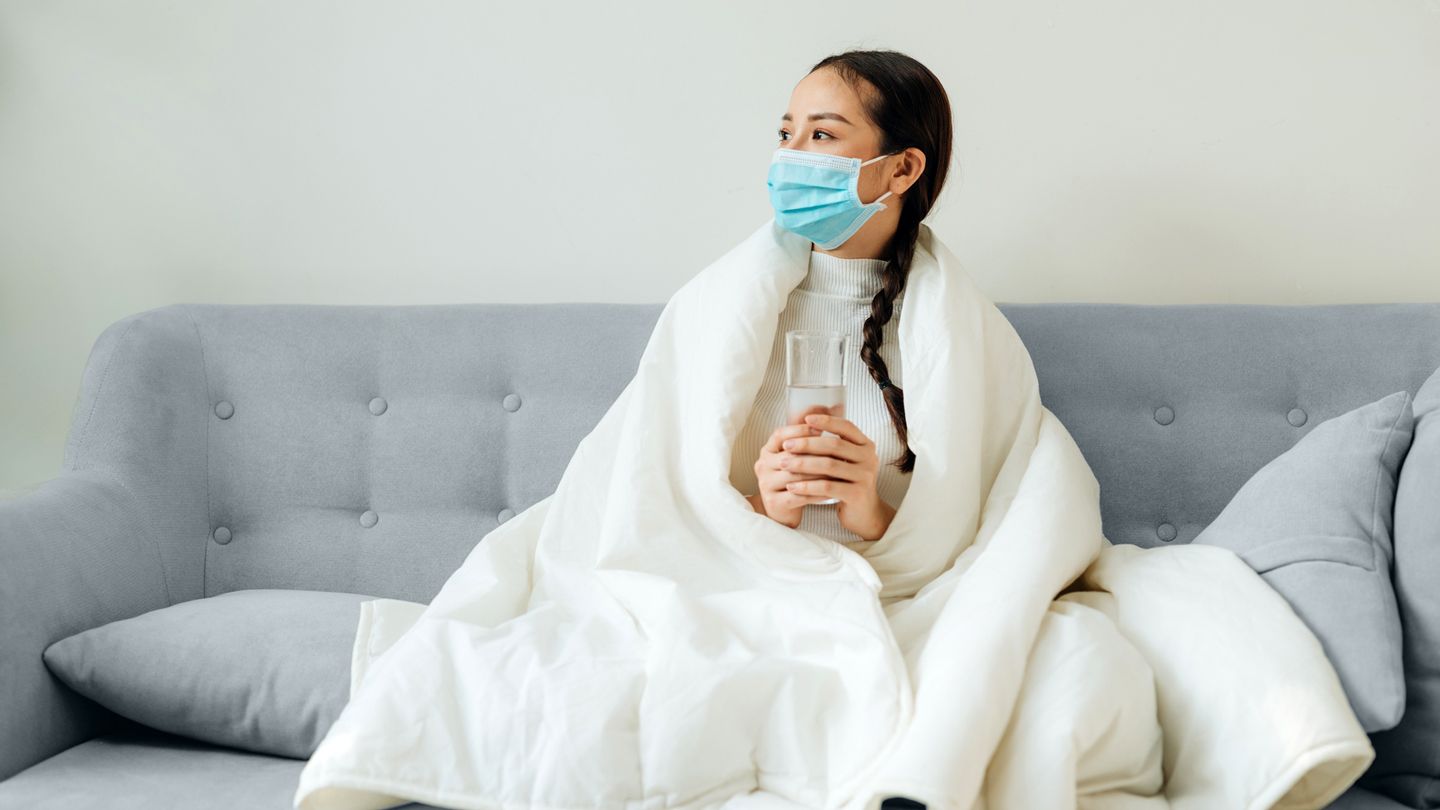Understanding What's Causing Your Throat Tickle
A tickle in your throat can be caused by a variety of issues. Here are some of the most common causes:
Postnasal Drip
Postnasal drip occurs when excess mucus from your sinuses drips down the back of your throat. This mucus can irritate your throat and cause it to feel scratchy or tickly. Postnasal drip is often caused by allergies, colds, flu, sinus infections, or environmental irritants.
Laryngopharyngeal Reflux (LPR)
LPR happens when stomach acid backing up into your throat. This can irritate your vocal cords and throat, leading to a tickling cough or sore throat. LPR often worsens when laying down as gravity isn't helping keep acid in the stomach.
Dry Air
Dry air can remove moisture from your throat, causing it to become irritated. This often happens more during colder winter months when indoor heaters are running frequently. Dry air allows viruses and bacteria to thrive, making you prone to throat infections.
Smoking and Vaping
Inhaling tobacco, smoke, or vapor can irritate your throat and cause it to feel tickly. This irritation promotes excess mucus production as your body tries to remove toxins.
Allergies
Inhaling allergens like pollen, pet dander, or dust may trigger postnasal drip, irritating your throat. Allergies also promote sinus congestion which can worsen postnasal drip.
Viral or Bacterial Infection
Colds, the flu, strep throat, and other infections can cause your throat to become swollen, irritated, and tickly. Your body produces excess mucus to try and expel the infection.
When to See a Doctor
While a minor throat tickle will often resolve on its own, it's best to see your doctor if:
Your throat tickle lasts longer than 1-2 weeks
Chronic throat irritation may be a sign of an underlying condition needing treatment.
Difficulty swallowing or breathing
This may indicate swelling around your throat that requires medical attention.
Fever over 101 F
A fever with a sore throat could mean a strep infection requiring antibiotics.
Ear pain
Throat infections may spread to ears. See a doctor to prevent complications.
Blood in mucus
Blood may indicate a more serious infection or throat ulcer.
Hoarse voice lasting over 2 weeks
Prolonged hoarseness could signify an issue with your vocal cords.
Home Remedies to Soothe a Throat Tickle
Several home remedies may provide relief for a minor throat tickle:
Salt Water Gargle
Gargling with warm salt water can help soothe throat tissues and thin excess mucus. Dissolve 1/2 teaspoon salt in 8 ounces warm water and gargle several times a day.
Humidifier
Running a humidifier adds moisture back to dry air, preventing throat irritation. Keep humidity around 40-50%. Clean humidifiers regularly to prevent mold growth.
Warm Beverages
Sipping warm broth, tea with honey, or lemon water can provide temporary relief by coating and soothing your throat.
Lozenges
Cough drops or throat lozenges with numbing ingredients like menthol or benzocaine can temporarily stop throat tickles and coughs.
Apple Cider Vinegar
The acetic acid in apple cider vinegar can help kill bacteria and soothe throat tissues. Mix 1-2 tbsp apple cider vinegar with 8 ounces warm water and gargle.
Marshmallow Root Tea
The mucilage in marshmallow root creates a protective layer over throat tissues, easing irritation. Steep 1 tbsp dried root in hot water for 5-10 minutes.
Ginger Tea
Ginger contains anti-inflammatory compounds called gingerols which can calm throat inflammation. Brew fresh ginger tea or add ginger powder to any herbal tea.
Avoid Irritants
Stop smoking and avoid secondhand smoke which can further irritate your throat. Drink plenty of fluids to thin mucus.
Over-the-Counter Medications
Several OTC medications may help get rid of an annoying throat tickle:
Cough Suppressants
Cough suppressants like dextromethorphan (Robitussin DM) can dampen the urge to cough. This provides throat relief by decreasing throat irritation.
Expectorants
Expectorants like guaifenesin (Mucinex) thin mucus secretions making them easier to cough up. This clears excess phlegm from your throat.
Antihistamines
Antihistamines like loratadine (Claritin) can reduce throat-tickling postnasal drip caused by allergies. They dry up excess mucus.
Analgesics
Tylenol (acetaminophen) or ibuprofen can lessen throat pain from coughing and provide temporary relief.
Antacids
Antacids like Tums or Rolaids can help neutralize stomach acid that may be backing up into your throat causing LPR.
Nasal Steroids
Nasal steroid sprays such as Flonase can reduce inflammation in your nasal passages and sinuses cutting down on postnasal drip.
When to See Your Doctor for a Lingering Cough
It's normal for a cough to linger for up to 3 weeks after a viral illness as your body clears away excess mucus. However, see your doctor if your cough:
Lasts longer than 3 weeks
A persistently tickly cough may indicate an underlying condition needing medical treatment.
Produces blood or yellow/green mucus
This may signify a bacterial infection requiring antibiotics.
Occurs alongside a fever
A fever with cough may mean pneumonia, bronchitis, or other illness.
Causes wheezing or chest pain
These symptoms suggest asthma, pneumonia, or other serious lung issues.
Disrupts sleep
Chronic coughs interrupting sleep warrant medical care to improve rest and recovery.
When to Take Cough Medicine
Cough medicines provide the most relief when taken appropriately:
During the Day
Daytime coughing disrupts work and activities. Cough medicines suppress daytime coughs so you can function.
Before Bed
Take cough suppressants before bed to allow sleep. Lying down exacerbates coughs for many.
With Other Medicines
Pair cough medicine with fever reducers, analgesics, nasal sprays, or other relevant treatments.
When Following Dosing Instructions
Carefully follow dosing directions on packaging to avoid side effects or overdose.
For No Longer Than Indicated
Don't take cough medicine longer than advised, usually 3-10 days. Seek medical advice for persistent coughs.
What to Avoid When You Have a Tickly Cough
Certain foods, drinks, and behaviors can worsen coughing:
Alcohol
Alcohol dries out and irritates throat tissues, provoking coughs. Avoid drinking until your cough improves.
Caffeine
Caffeine may loosen phlegm and stimulate coughing. Limit coffee, tea, and soda.
Secondhand Smoke
Avoid cigarette or cigar smoke which can further inflame your throat.
Spicy Foods
Spicy foods may irritate throat tissues and trigger coughing fits.
Dairy Products
Dairy increases mucus production in some people, worsening congestion and coughs.
Acidic Foods
Tomatoes, citrus fruits, and other acidic foods may provoke coughing.
Dusty Places
Dust can exacerbate respiratory irritation. Avoid being around irritants.
Lying Down
Coughs often worsen at night when lying flat. Use extra pillows to prop yourself up.
Home Remedies for Nighttime Cough Relief
Hacking coughs at night can make it impossible to rest. Here are some home remedies that may help quiet nighttime coughs:
Humidifier
Moisten air with a humidifier in your bedroom to prevent dry airways and reduce coughs.
Propped Up Pillows
Sleep propped up on pillows to use gravity to keep mucus from pooling in throat.
Cough Drops
Long-lasting menthol cough drops coat and numb irritated throat tissues at bedtime.
Warm Tea
Sip a warm, caffeine-free tea like chamomile or lavender to relax throat muscles.
Essential Oils
Rubbing chest and neck with menthol, eucalyptus, or peppermint oil may ease coughs before bed.
Over-the-Counter Sleep Aids
OTC sleep aids with doxylamine succinate as the active ingredient can suppress coughs.
Throat Lozenges
Long-lasting throat lozenges with benzocaine or phenol numb and coat the throat overnight.
Vapor Rub
Rubbing chest and neck with vapor rubs containing menthol, eucalyptus, and camphor can improve nighttime coughs in adults and children over 2 years old.
When to Seek Medical Care for Persistent Coughing
Make an appointment with your doctor if your cough:
Lasts Over 3 Weeks
Coughs persisting longer than 3 weeks may indicate an underlying medical condition needing treatment.
Produces Blood or Pus
Coughing up blood, yellow, or green phlegm could mean a bacterial infection requiring antibiotics.
Occurs Without Other Symptoms
A dry cough with no other symptoms could signal lung cancer or chronic bronchitis.
Disrupts Sleep
Chronic coughs that regularly interrupt sleep warrant medical attention.
Worsens Over Time
See your doctor if your cough is progressively getting more frequent or intense.
Professional Treatment Options for Chronic Coughs
If home remedies don't resolve your cough, doctors have several treatment options including:
Medications
Prescription cough medicines, inhalers, antibiotics, steroids, or antifungals may be used depending on the cause.
Nebulizer Treatments
Using a nebulizer to inhale mist into the lungs can help clear mucus and soothe coughs.
Proton Pump Inhibitors (PPIs)
PPI drugs reduce stomach acid production making them effective for reflux-related coughs.
Speech Therapy
Speech therapists teach techniques to protect your vocal cords and reduce tickling coughs.
Allergy Shots
Allergy shots over several months can decrease cough-provoking allergy symptoms.
Avoiding Triggers
Preventing exposures to substances triggering your coughs can help manage chronic coughs.
When to Seek Emergency Care for Coughs
Go to an emergency room or urgent care if you experience:
Difficulty Breathing
Labored breathing accompanying your cough may indicate pneumonia, COPD flare-ups, or other serious conditions.
Coughing Up Blood
Coughing up more than a few teaspoons of blood requires prompt evaluation to check for internal bleeding.
Severe Chest Pain
Sharp chest pains with cough need evaluation to rule out lung infections, blood clots, or heart issues.
High Fever
Fevers over 103 F, especially with shaking chills, warrant immediate medical help.
Confusion
Mental confusion with cough and difficulty breathing signifies dangerously low oxygen levels.
Don't let an irritating throat tickle or cough disrupt your daily life. Try simple home remedies first, then seek medical help if symptoms don't improve. With appropriate treatment, you'll be breathing easy once again.
FAQs
What causes a tickle in your throat?
Common causes of a throat tickle include postnasal drip, laryngopharyngeal reflux, dry air, smoking, allergies, and infections.
When should you see a doctor for a throat tickle?
See your doctor if a throat tickle lasts longer than 1-2 weeks, makes breathing difficult, causes a fever over 101°F, blood in mucus, hoarse voice for over 2 weeks, or worsens over time.
What OTC medicines help a throat tickle?
Over-the-counter cough suppressants, expectorants, antihistamines, analgesics, antacids, and nasal steroids may provide relief for a throat tickle.
What foods should you avoid with a throat tickle?
Avoid alcohol, caffeine, spicy foods, dairy, acidic foods, and dusty environments when trying to get rid of a throat tickle.
When is a cough serious enough to warrant emergency care?
Seek emergency care for difficulty breathing, coughing up blood, severe chest pain, high fever over 103°F, or confusion accompanying a cough.
Disclaimer: This article is for informational purposes only and does not constitute medical advice. Always consult with a healthcare professional before starting any new treatment regimen.
Related Coverage
Taking NyQuil and Afrin nasal decongestant simultaneously is generally safe for healthy adults if proper dosage limits are followed. But side effect risks warrant consideration....
Wondering if you can take mucinex and ibuprofen together when you have a nasty cold? Learn how combining them works to target different symptoms for faster relief....
Ear pain has many causes including infections, swimmer's ear, TMJ and more. Learn the symptoms of ear infections and how to treat and prevent them properly....
Learn about common and serious Relenza side effects so you can make informed decisions when treating or preventing the flu....
Does Tylenol or other medication break your fast? Get the facts on NSAIDs, supplements, prescription drugs and more during intermittent, alternate day and prolonged fasting....
From postnasal drip to laryngopharyngeal reflux, discover what's causing your throat to feel tickly and scratchy. Try home remedies, OTC meds, and professional treatments to find relief....
Excess phlegm and mucus can be caused by allergies, infections, smoking, GERD, and other issues. A combination of home remedies and medical treatment can provide relief....
Get the facts on whether you can safely use Flonase and NyQuil at the same time. Learn about potential side effects, precautions, and other congestion remedies....
Flu-like symptoms can arise from many causes. Learn triggers, how to differentiate the flu, and simple steps to feel better fast....
Upper respiratory infections like colds, flu, and strep are highly contagious. Learn how they spread, treatment options, and precautions to avoid transmitting illness....



